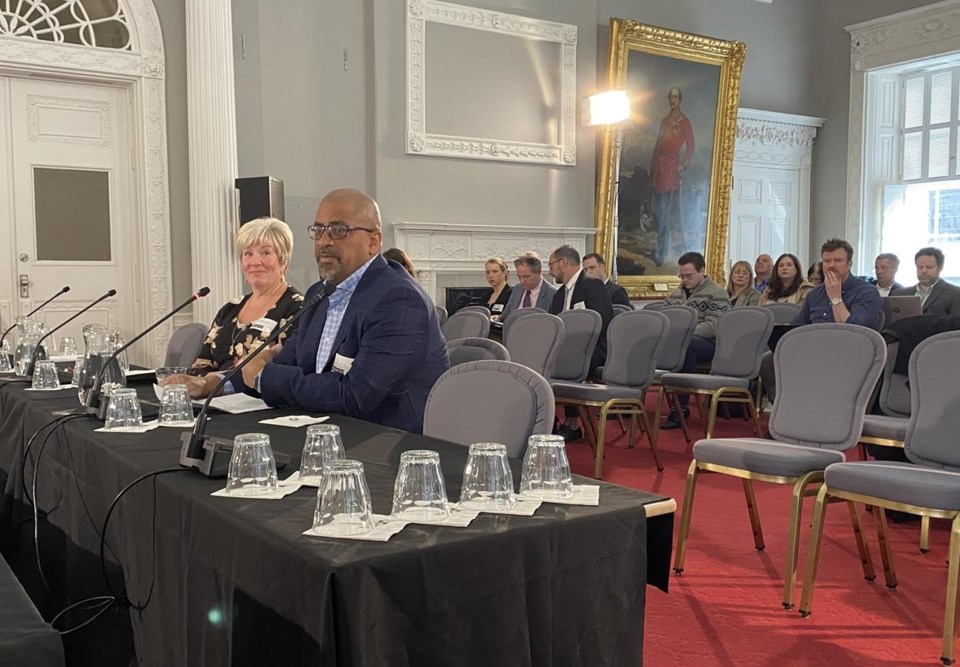HALIFAX — Lives could be put at risk if the Nova Scotia government doesn't maintain limits on who can access sensitive medical information about patients, a sexual assault survivor told a legislature committee on Monday.
Carrie Smith, of Digby, N.S., spoke out against a change in legislation she believes is too broad in giving the province access to patient health information.
“The public needs to have trust to receive safe health care from providers,” said Smith, whose voice broke at times with emotion. “They also need privacy.”
A change included in an omnibus bill that amends 15 provincial acts, including the Personal Health Information Act, would give the health minister access to personal medical information for “the purposes of planning and management of the health system, resource allocation and creating or maintaining electronic health record programs and services.”
Smith, along with the heads of two doctors' organizations in the province, told the law amendments committee that the bill could be improved to increase safeguards on privacy. But despite the warnings, no new changes were adopted Monday by the government majority on the committee, which sent the legislation back to the legislature for further debate and final reading.
Smith said trust is essential for assault survivors to seek treatment. Survivors, she added, could lose confidence in the health-care system if they know they won't be consulted about the release of their medical records.
“Giving custodians access to detailed patient records without patient consent should not be a best practice,” she said. “The loss of trust could make it very difficult for doctors and nurses to treat future patients.”
The public has a right to expect that details, especially about mental-health diagnoses and trauma, be kept confidential between doctors, nurses and therapists “unless required by law to save a life," Smith said.
"Health care needs to be safe and I do believe this could put many lives at risk.”
Health Minister Michelle Thompson has said the government doesn’t need individual information but wants aggregate data about how patients are using the health system.
However, Dr. Gus Grant, registrar and CEO of the College of Physicians & Surgeons of Nova Scotia, told the committee that the language of the bill should be clarified to ensure the information gathered can’t be identified to an individual patient. The bill as proposed “strikes at the heart” of the doctor-patient relationship, he said, adding that there should be limits on the extent of the information disclosed and on who has access to it.
“Right now, the language says the minister may access personal health information which by definition is identifiable to the individual,” he said.
Doctors Nova Scotia, which represents more than 3,500 physicians, said the province has committed to establishing a data governance framework, and setting up a committee to oversee how the information is accessed and used. The organization’s president, Dr. Colin Audain, told the committee the government’s plan to access information is “well intentioned.”
“We feel through adequate safeguards we can protect the confidentiality inherent in the therapeutic relationship between a physician and patient,” Audain said.
But he also proposed an amendment that would commit future governments to the same privacy protections.
“We would like to see greater protection within the legislation to ensure the legacy of this government’s intentions and the safeguards that will be in place will be honoured in the future,” Audain said.
This report by The Canadian Press was first published March 25, 2024.
Keith Doucette, The Canadian Press



